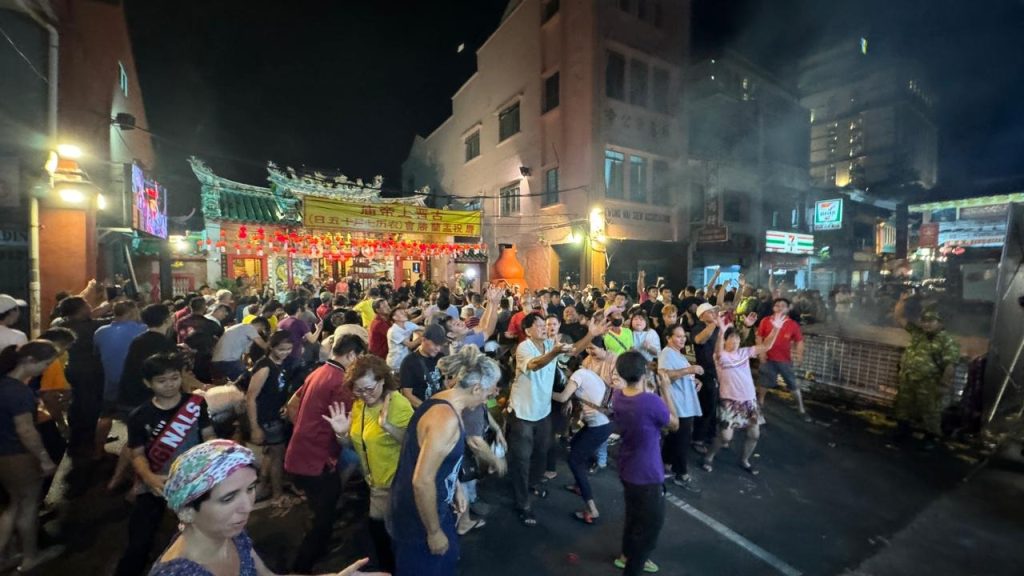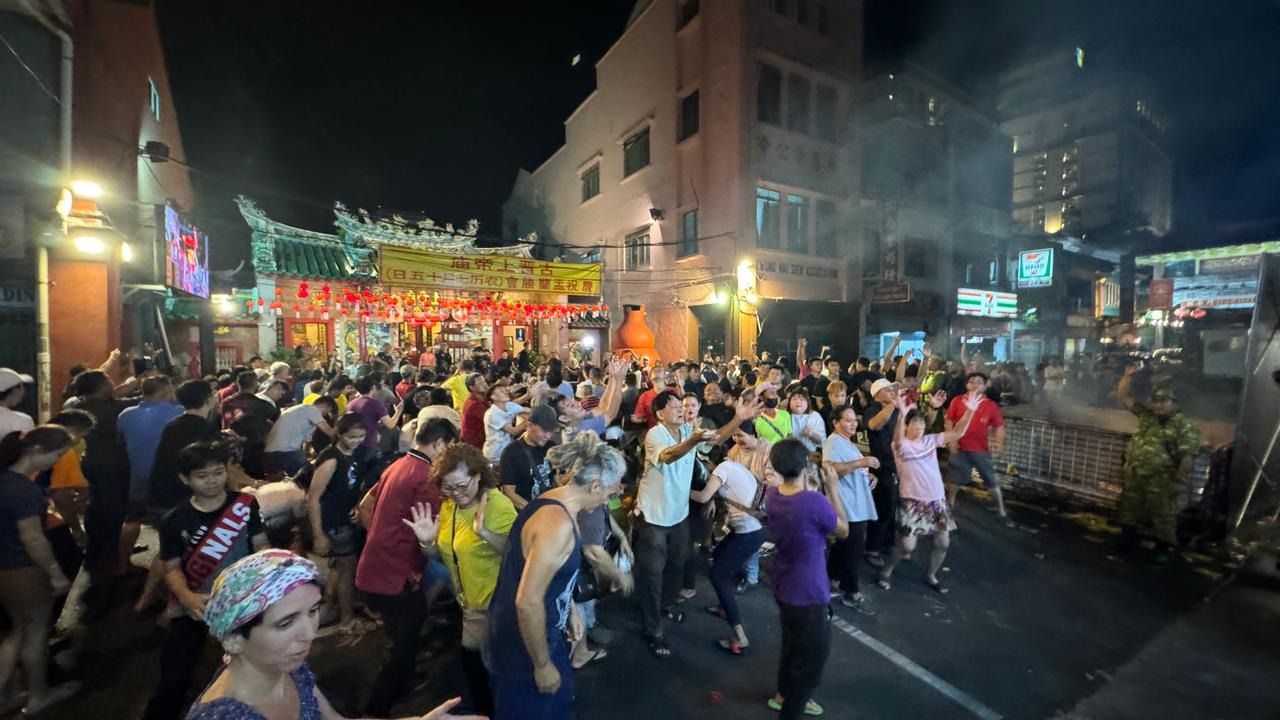Advertisements
Kuching’s Hungry Ghost Festival Draws Believers and Tourists Alike

KUCHING (Aug 19): The air around Carpenter Street was filled with an electrifying energy last night as hundreds of believers, individuals from various faiths, and curious foreign tourists gathered at the Shang Ti Temple for the annual Hungry Ghost Festival. This ancient festival, steeped in tradition and spiritual significance, has been a cornerstone of Kuching’s Chinese community for over a century.
The highlight of the night was undoubtedly the ‘grappling with the ghosts’ or Qiang Gu, a deeply symbolic event that captivated both participants and onlookers alike.
The Significance of Qiang Gu: A Cultural Insight
A Test of Faith and Fortune
The Qiang Gu ceremony, organised by the Kuching Teochew Association, is the centerpiece of the Hungry Ghost Festival. This traditional event, celebrated on the 15th day of the seventh month of the lunar calendar, sees participants vying to grab tickets that represent offerings for the wandering souls. The belief is that those who manage to secure a ticket will be blessed with good fortune, while those who fail may face bad luck in the coming year.
Participants at the Shang Ti Temple were not only locals but also visitors from other faiths and foreign lands, eager to immerse themselves in this unique cultural experience. The sight of people from different backgrounds coming together to participate in this ritual is a testament to Kuching’s spirit of unity and cultural diversity.
The Ritual of Qiang Gu: Feeding the Hungry Ghosts
The term Qiang Gu literally means ‘grappling with the ghosts,’ and it symbolizes the desperate rush of hungry ghosts to grab food during this auspicious time. In Chinese culture, it is believed that during the Ghost Month, the gates of the underworld are opened, allowing spirits and souls, including those of deceased ancestors, to roam freely among the living.
The Hungry Ghost Festival is, therefore, a time for the living to offer food and joss papers to these wandering spirits, ensuring they are well-fed and appeased. The act of grabbing a ticket during Qiang Gu is more than just a fun activity; it is a way of participating in this age-old tradition of caring for the unseen.
Advertisements
Inclusivity in Tradition: Non-Believers Embrace the Festival
Bridging Cultures Through Ritual
What made this year’s Hungry Ghost Festival at Shang Ti Temple particularly special was the involvement of non-believers and foreign tourists. The Kuching Teochew Association made efforts to include everyone, providing guidance and explanations about the rituals and their significance. This inclusive approach not only allowed visitors to understand the cultural importance of the festival but also created a sense of community and shared experience.
Many non-believers joined in the folding of joss papers, an activity traditionally associated with offering spiritual currency to the deceased. The act of folding these papers, while seemingly simple, carries deep symbolic meaning and is a gesture of respect and remembrance for those who have passed.
A Learning Experience for All
For the foreign tourists, the Hungry Ghost Festival was more than just a spectacle; it was an opportunity to learn about the rich cultural heritage of the Chinese community in Kuching. Many expressed their admiration for the festival’s rituals and the way it brings people together, regardless of their religious beliefs or cultural backgrounds.
The participation of such a diverse crowd in the Qiang Gu ceremony highlights the universal appeal of cultural traditions and the importance of preserving them in a rapidly changing world.
The Hungry Ghost Festival: A Time-Honored Tradition
More Than Just Qiang Gu
While Qiang Gu may be the highlight of the Hungry Ghost Festival, it is by no means the only ritual observed. The festival also features ritualistic food offerings and the burning of joss papers, both of which are integral to the tradition. These offerings are made to ensure that the spirits are satisfied and do not bring misfortune to the living.
The festival is also a time for families to come together and remember their ancestors, reinforcing the bonds between the past and the present. In a city like Kuching, where cultural traditions are cherished and celebrated, the Hungry Ghost Festival serves as a reminder of the importance of maintaining these connections.
Conclusion: Preserving Cultural Heritage
The Hungry Ghost Festival at Shang Ti Temple is more than just a religious event; it is a cultural celebration that brings together people from all walks of life. As Kuching continues to grow and modernize, events like this festival play a crucial role in preserving the city’s rich cultural heritage.
The involvement of non-believers and tourists in this year’s festival is a positive sign that these traditions will continue to thrive, bringing people together in the spirit of unity and understanding. As the night came to a close, the participants left with a sense of fulfillment, having not only taken part in a time-honored tradition but also in a shared cultural experience that transcends religious and cultural boundaries.


